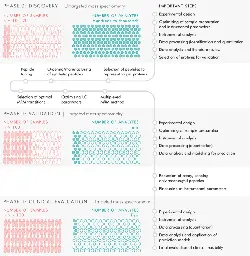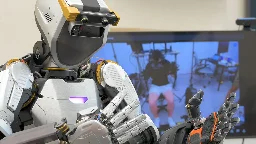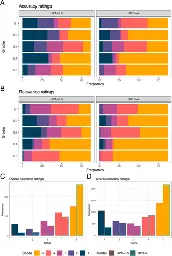A conversation about marketing, evals, and AI.

Apple’s first big salvo in the AI wars makes a bet that people will care about data privacy when automating tasks.

Google DeepMind’s AlphaProof and AlphaGeometry 2 are milestones for AI reasoning.

A team of astronomers has identified a temperate exoplanet as a promising super-Earth ice or water world.

Written by Claire Kowalick A breakthrough for biomedical research promises new insight into immunotherapy development and disease modeling. Scientists at The University of Texas Health Science Center at San Antonio have created a humanized mouse model with a human immune system and a human-like gut ...

Researchers have developed a technique called natural language embedded programs (NLEPs) that improves the performance of large language models by generating Python programs to solve complex tasks. This method not only enhances accuracy and efficiency but also increases transparency, as users can

Parkinson’s disease is lacking easily accessible biomarkers. Here the authors show, that targeted blood proteomics is feasible to identify the patients and to predict the phenoconvertion in prodromal subjects up to 7 years before symptom onset.

Researchers at the American Diabetes Association conference in Orlando are expected to present data on 27 GLP-1 drugs in development. Others target a different hormone.

Optical neural networks, which use photons instead of electrons, have advantages over traditional systems. They also face major obstacles.

Scientists at the University of Southern California have developed an artificial intelligence (AI)-powered system to track tiny devices that monitor markers of disease in the gut. Devices using the novel system may help at-risk individuals monitor their gastrointestinal (GI) tract health at home, wi...

With their “T-REX” method, MIT researchers developed a glassy, amber-like polymer that can be used for long-term storage of DNA, such as entire human genomes or digital files such as photos.

Inversion Space targets military market with 'warehouses in space'

"But when gen AI came out, I think everybody's on the bandwagon and believing that is the correct pace."

A warp drive breakthrough has been unveiled by leading propulsion researchers in in a groundbreaking new study.

The same technologies are being used by Chinese people to make replicas of themselves, their children, and famous public figures.

Sanctuary AI has now officially released the 7th generation of its highly anticipated Phoenix AI-powered general-purpose robot.

Author summary Large language models (LLMs) are the most sophisticated form of language-based artificial intelligence. LLMs have the potential to improve healthcare, and experiments and trials are ongoing to explore potential avenues for LLMs to improve patient care. Here, we test state-of-the-art L...

On April 9, CATL unveiled TENER, the world's first mass-producible energy storage system with zero degradation in the first five years of use. Featuring all-round safety, five-year zero degradation and a robust 6.25 MWh capacity, TENER will accelerate large-scale adoption of new energy storage t...
Today's AI is extremely energy inefficient compared to the human brain. This approach is interesting, as should it work, it would be much closer to the brain's energy efficiency.
As AI develops it will just get better and better at manipulating people. At some point I'm sure we'll have AI that is doing that to us in ways we don't even realize or see coming.
It's a shame they can't move it to a higher orbit & leave it there for future generations. People a century or two from now will be curious about the earliest days of humans in space.
It seems obvious now AI is as advanced as it is that voice interaction should feature more strongly. Scanning and reading are quicker for long-form content, but where the result I want is a short answer, it would be as quick for AI to tell me.
The other obvious idea is that it would be great if screens could exist via Augmented Reality. There are ways of doing this now, but they are still cumbersome. Maybe that is where the breakthrough is needed.
Zipline are hugely successful in Africa. The model there is to fly low & slow and drop the packages.
https://impakter.com/how-drones-are-revolutionising-delivery-of-medicine/

